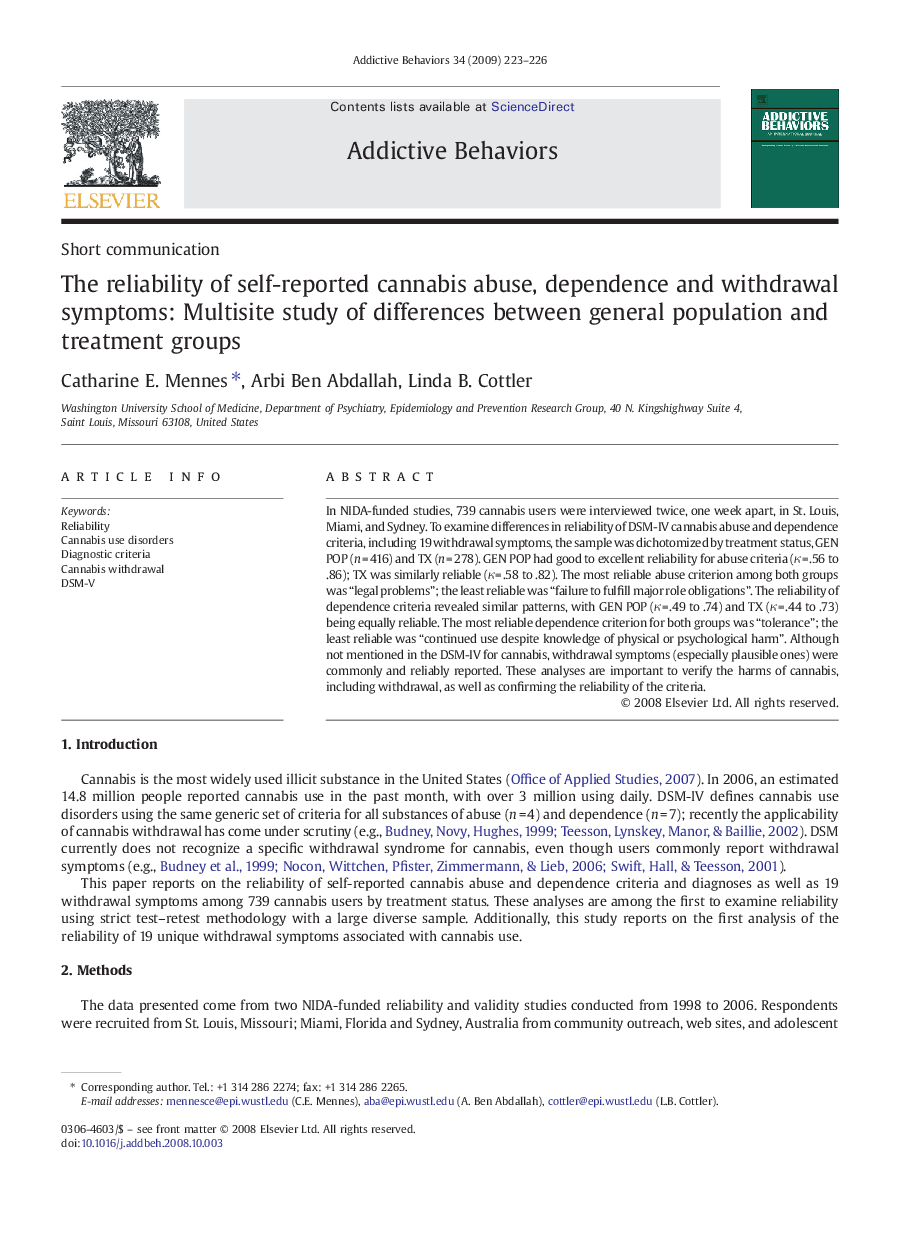| Article ID | Journal | Published Year | Pages | File Type |
|---|---|---|---|---|
| 900277 | Addictive Behaviors | 2009 | 4 Pages |
In NIDA-funded studies, 739 cannabis users were interviewed twice, one week apart, in St. Louis, Miami, and Sydney. To examine differences in reliability of DSM-IV cannabis abuse and dependence criteria, including 19 withdrawal symptoms, the sample was dichotomized by treatment status, GEN POP (n = 416) and TX (n = 278). GEN POP had good to excellent reliability for abuse criteria (κ = .56 to .86); TX was similarly reliable (κ = .58 to .82). The most reliable abuse criterion among both groups was “legal problems”; the least reliable was “failure to fulfill major role obligations”. The reliability of dependence criteria revealed similar patterns, with GEN POP (κ = .49 to .74) and TX (κ = .44 to .73) being equally reliable. The most reliable dependence criterion for both groups was “tolerance”; the least reliable was “continued use despite knowledge of physical or psychological harm”. Although not mentioned in the DSM-IV for cannabis, withdrawal symptoms (especially plausible ones) were commonly and reliably reported. These analyses are important to verify the harms of cannabis, including withdrawal, as well as confirming the reliability of the criteria.
